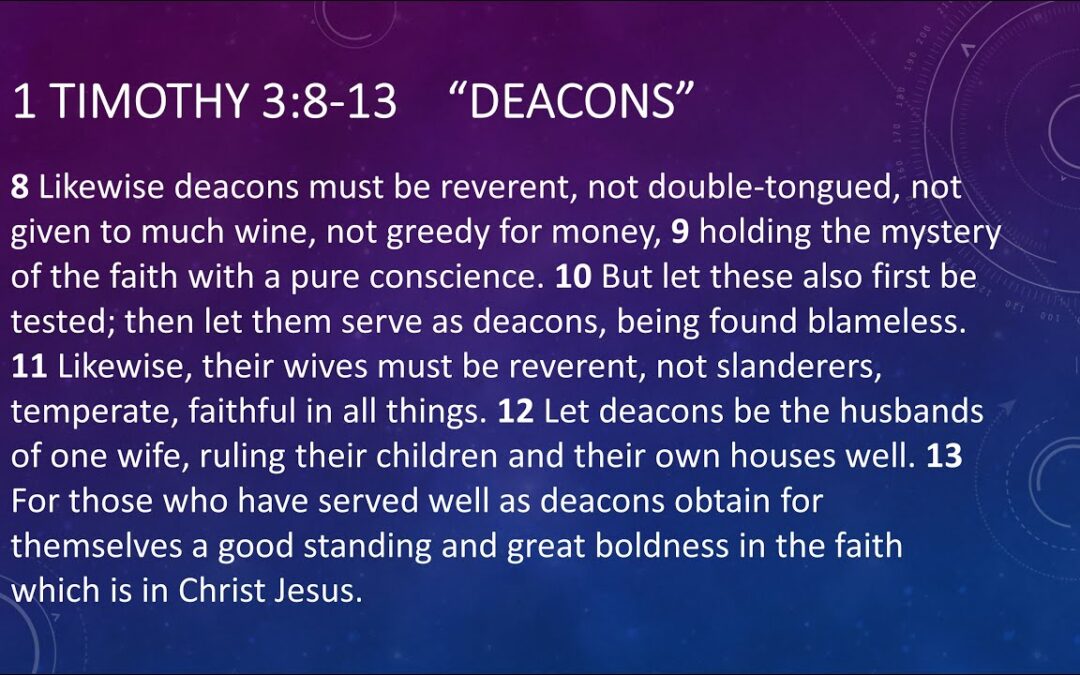Whenever we embark on a study about church leadership, some might say: “I don’t have any plans to become a deacon, so why do I need to hear these things?” There are several reasons it is necessary for the entire church to hear teaching about church leadership:
First, as we work through these qualifications for deacons, it will be obvious that the list basically describes a faithful Christian, not some category of extreme faithfulness that only 1% of Christians ever attain to. There is no way to ignore these standards due to some kind of thinking like: “I’ll never be in church leadership, so these things don’t really apply to me.” That would be equivalent to saying that as long as someone isn’t in church leadership, it’s okay to be a drunkard or a liar or live with a dirty conscience! But does that mean all faithful Christians are called to be in church leadership? No, God has not ordained that, but all should seek to strive to be as useful as possible in serving the body and as individuals do that, the church body will recognize some as being especially exemplary in these characteristics.
In addition to these qualifications representing faithful Christianity, a second reason that this is important to study is because the church needs to be able to affirm the deacons that are put forth to the body for consideration. How will the church body do that if they aren’t informed about the role and qualifications? Also, how would the body know what to expect from deacons and what to hold deacons accountable to unless there is a study on the subject?
Thirdly, this kind of study will inform our prayers for the identification and appointment of deacons in our church. And then specifically with regards to praying that needs would be met more effectively in the life of our church body.
Lastly, this is an important topic because we should be convinced that all of God’s word, and especially the NT, is meant for our edification. With that in mind, how should we approach the book of 1st Timothy, which has almost an entire chapter devoted to qualifications of leaders?
Paul tells Timothy that 1st Timothy was written so that you will know how one ought to conduct himself in the household of God, which is the church of the living God, the pillar and support of the truth (3:15). We must trust that God gave us the revelation that we need not only to grow in Christlikeness, but also to identify godly characteristics of a church leader. A lack of biblically qualified leadership in biblically stated roles is arguably the greatest weakness in the church today. Unqualified leadership has led to pragmatic goals of ministry, superficial content, and vain efforts that have little to no Christian influence whatsoever.
That’s why it’s important for all Christians to be taught about church leadership.

